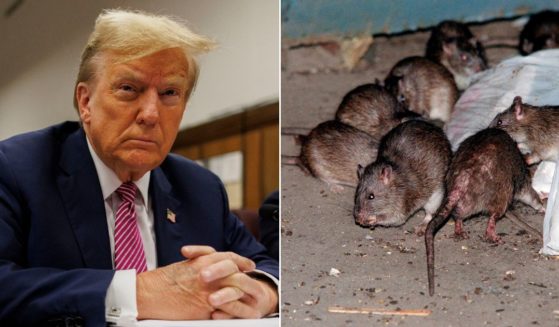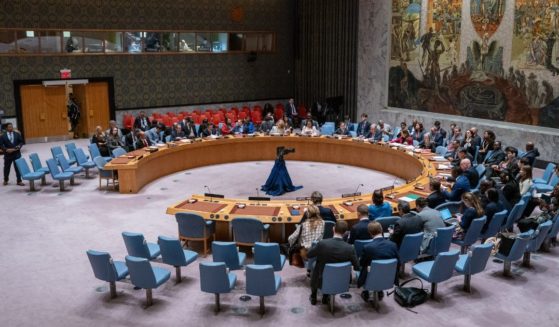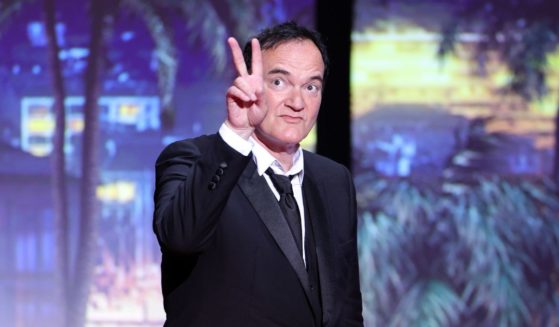Pharma Company Behind Miracle COVID Pill Is Marking Up Price 4,000%
Molnupiravir was supposed to be the next big breakthrough in getting us back to something resembling normalcy. If only we could afford it.
The Merck-marketed antiviral drug reduced hospitalizations for COVID-19 by 50 percent in a study of 775 high-risk patients.
According to the Daily Mail, 7.3 percent of those taking molnupiravir were hospitalized compared to 14.1 percent who received a placebo. While eight patients in the placebo group died, none from the molnupiravir group did.
The drug was developed with massive government subsidies by a company licensed by Ridgeback Biotherapeutics. Ridgeback sold the rights to Merck in 2020.
The Intercept reported that molnupiravir was initially investigated as a treatment for Venezuelan equine encephalitis, although it’s now found a far more useful application. As a pill, it’s far easier to distribute than intravenous antiviral treatment.
A five-day course of treatment can be manufactured for $17.74, according to a report from drug pricing experts at the Harvard School of Public Health and King’s College Hospital in London.
The U.S. government, however, is paying $712 per treatment — a 4,000 percent markup.
In countries where the populace wouldn’t be able to afford the medication, it’s being priced differently. Consider India, where Merck has licensing agreements with five companies to manufacture generic molnupiravir. It will be sold for $12 a course.
“Merck has committed to providing timely access to molnupiravir globally, if it is authorized or approved, and plans to implement a tiered pricing approach based on World Bank country income criteria to reflect countries’ relative ability to finance their health response to the pandemic,” Merck said in a statement.
The problem is that the U.S. — the country that provided the funding to develop molnupiravir — would be the big loser in a “tiered pricing approach.” American taxpayers shelled out at least $29 million on the development of the drug, after all. Why are we stuck spending $712 per treatment?
Partly because Merck and Ridgeback are pretending that funding didn’t exist.
In an interview with CNBC, Ridgeback co-founder Wendy Holman insisted the company requested but “never got government funding” to develop molnupiravir as a COVID-19 medication. (The Intercept had previously reported that the company requested $100 million from the government for that purpose.)
“The public funded this drug, and therefore the public has some rights, including the rights you have it available under reasonable terms,” said Luis Gil Abinader, senior researcher at Knowledge Ecology International.
“What they want to do, apparently, is to shape the narrative about who paid for the development of this drug in order to avoid demands from the public to make it available at reasonable prices.”
The authors of the drug pricing study suggested Merck’s tactics meant molnupiravir wouldn’t have any real effect on the trajectory of the pandemic, given few could afford it.
“Offering someone a $700 treatment when they don’t yet feel that ill is going to mean that a lot of people are not going to take it,” said Dr. Dzintars Gotham, a physician at King’s College Hospital.
While the authors of the study admitted the $17.74 cost is an estimate, their methodology tends to overestimate the price. Even if Merck sold the drug for $19.95, the company would still make a 10 percent profit.
In any other situation, a breakthrough drug from the private sector should be priced as the company sees fit. The fight against COVID-19 is an exception, however, particularly given the amount of taxpayer investment that’s gone into it.
The left-leaning Intercept quoted experts urging the invocation of the Bayh-Dole Act, a 1980 law that allows the government to suspend patents for government-funded commercial products if they’re overpriced.
Speaking from the other end of the political spectrum, one hopes that never becomes necessary.
However, if molnupiravir is as effective as advertised and U.S. taxpayers funded its development, $712 a pop isn’t going to cut it.
Truth and Accuracy
We are committed to truth and accuracy in all of our journalism. Read our editorial standards.












